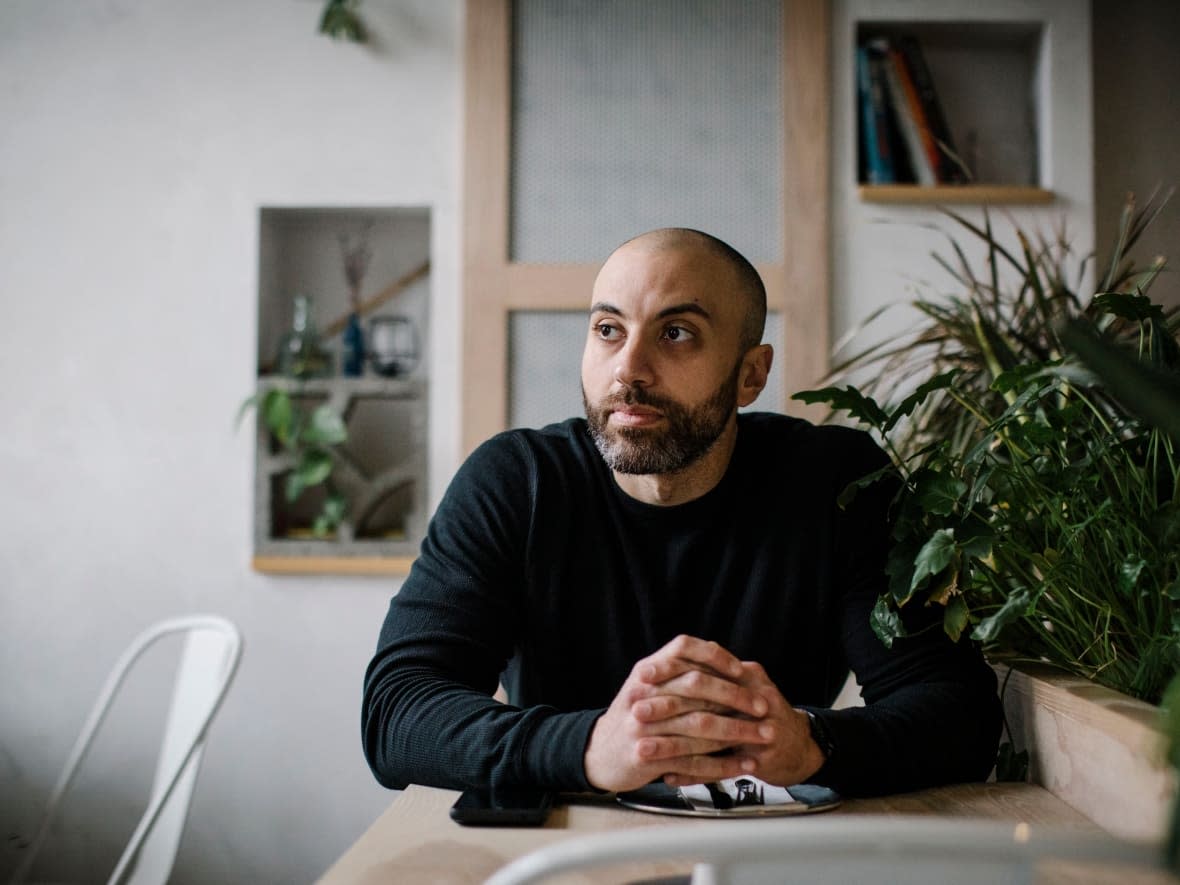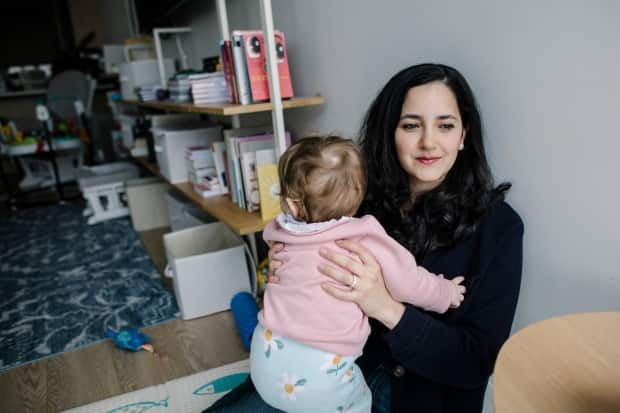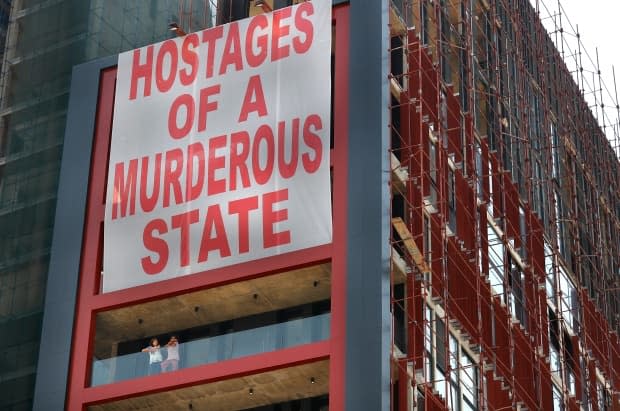Thousands of expats cast votes in Lebanon's election, hoping independent candidates can bring change

Thousands of Lebanese living in Canada are heading to polling stations Sunday to cast their votes in the country's first national elections since mass protests in 2019, a startling economic downturn, and the blast that devastated much of the capital Beirut.
Expatriates of the country were first allowed to vote in 2018, but this year, fuelled in part by events in Lebanon and the organization of expatriate communities, nearly three times the number of people are expected to vote outside the country.
In 60 countries, nearly 226,000 people are registered to vote. In Canada, 27,000 people are registered, up from 11,000 in 2018.
Haitham Al-Khatib, the owner of a popular vegan Lebanese eatery in Vancouver, says he hopes that by throwing his support behind a list of independent candidates unaffiliated with Lebanon's religious parties currently in government, there will be a chance at reform.
"The biggest significance of this election is there's an alternative. For the last 20 to 30 years there hasn't been a full alternative where people can vote for progressive youth that are seeking change from the current regime," he said.
"This is probably the first time that there is a sliver of hope in that way."
Since a 15-year civil war ended in 1990, droves of Lebanese have left the country, fleeing waves of crisis and seeking opportunities elsewhere. There are around 14 million Lebanese living abroad compared to around five million in the country itself.
Since mass protests in 2019, activist networks have organized through sophisticated campaigns on social media, mobilizing Lebanese abroad to register to vote, and organizing for polling stations to be set up in 60 countries.
Across Canada, there are 11 polling stations, including one in Coquitlam, B.C., two in Montreal and two in Ottawa to accommodate the cities' large Lebanese diaspora populations.

Sabrina Chammas, who will be casting her vote in Coquitlam, said many Lebanese living abroad have been galvanized by the cascade of crises in the small Mediterranean country.
Even before the August 2020 blast that destroyed large swaths of Beirut, the country was facing a hyperinflation crisis and shortages of electricity, gas, and medication.
"People aren't even getting basic necessities like electricity, and we're talking about the middle class. Even my own grandparents I visited in December, they had no electricity, they were freezing in the dark," she said.
"This vote is the best way to actually get heard and say 'we do not stand for the way the country is being run right now.' If there is even a one per cent chance that there's going to be a change, then we'll take that chance."
Lebanon holds parliamentary elections every four years, electing members of parliament to 128 seats allocated under a sectarian power-sharing system.
A report from the Arab Reform Initiative estimates the diaspora vote could represent up to six per cent of the electorate but says there is little data to predict how expatriates will vote. In 2018, most Lebanese voting in Canada supported the Lebanese Forces and Free Patriotic Movement, two Christian political parties.
But the report notes there are at least two districts where the diaspora vote could tip the scales in favour of independent candidates.

Bessma Momani, a professor at the University of Waterloo, said despite the sophisticated campaigning of many independent candidates, they'll face an uphill battle in a sectarian system that is designed to favour established politicians and is notoriously corrupt.
"The confessional system in Lebanon really does privilege sectarian-based political parties because that's how power is allocated. There's enormous frustration, particularly among the young people, but also many in the opposition about the very nature of this system," she said.
"Unfortunately, the opposition parties haven't really consolidated, they haven't really formed a party that all the opposition could go to, and so regarding this particular election, we're likely going to see the same political parties come to the fore."
Chammas said despite the massive structural challenges independent candidates face, the political environment in Lebanon has shifted since the last elections.
"In 2018 people were not on the streets. There are so many people protesting, protesting, protesting — we have to see this result somewhere," she said.
Al-Khatib said he hopes the influx of newly registered voters indicates there is a desire for change, even if only a handful of parliamentary seats go to candidates unaffiliated with the entrenched political parties.
"With a new generation of people, there's going to be more desire to move away from the old ways of doing things, because we saw where that got us," he said.


